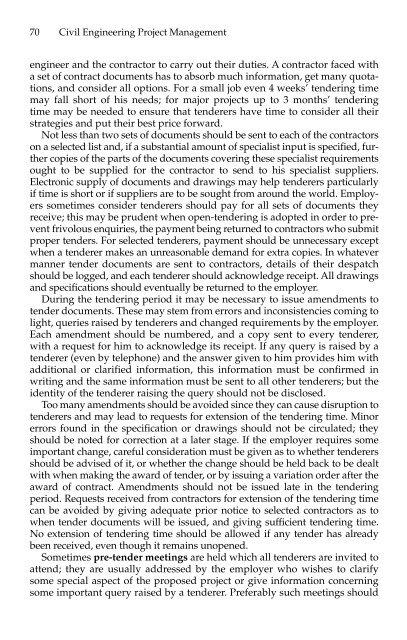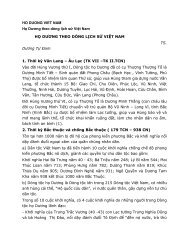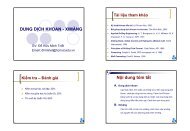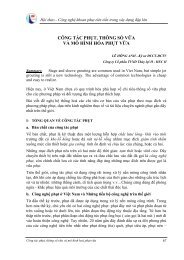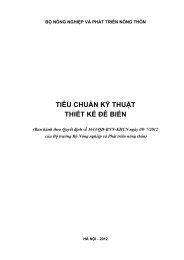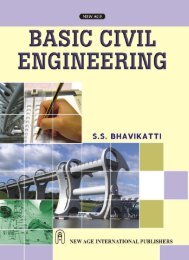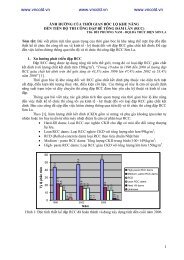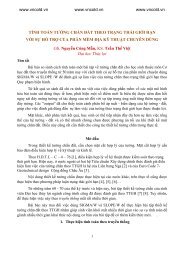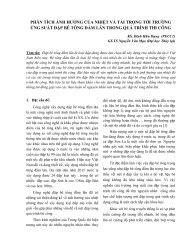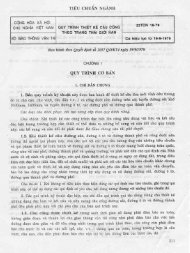Civil Engineering Project Management (4th Edition)
Create successful ePaper yourself
Turn your PDF publications into a flip-book with our unique Google optimized e-Paper software.
70 <strong>Civil</strong> <strong>Engineering</strong> <strong>Project</strong> <strong>Management</strong><br />
engineer and the contractor to carry out their duties. A contractor faced with<br />
a set of contract documents has to absorb much information, get many quotations,<br />
and consider all options. For a small job even 4 weeks’ tendering time<br />
may fall short of his needs; for major projects up to 3 months’ tendering<br />
time may be needed to ensure that tenderers have time to consider all their<br />
strategies and put their best price forward.<br />
Not less than two sets of documents should be sent to each of the contractors<br />
on a selected list and, if a substantial amount of specialist input is specified, further<br />
copies of the parts of the documents covering these specialist requirements<br />
ought to be supplied for the contractor to send to his specialist suppliers.<br />
Electronic supply of documents and drawings may help tenderers particularly<br />
if time is short or if suppliers are to be sought from around the world. Employers<br />
sometimes consider tenderers should pay for all sets of documents they<br />
receive; this may be prudent when open-tendering is adopted in order to prevent<br />
frivolous enquiries, the payment being returned to contractors who submit<br />
proper tenders. For selected tenderers, payment should be unnecessary except<br />
when a tenderer makes an unreasonable demand for extra copies. In whatever<br />
manner tender documents are sent to contractors, details of their despatch<br />
should be logged, and each tenderer should acknowledge receipt. All drawings<br />
and specifications should eventually be returned to the employer.<br />
During the tendering period it may be necessary to issue amendments to<br />
tender documents. These may stem from errors and inconsistencies coming to<br />
light, queries raised by tenderers and changed requirements by the employer.<br />
Each amendment should be numbered, and a copy sent to every tenderer,<br />
with a request for him to acknowledge its receipt. If any query is raised by a<br />
tenderer (even by telephone) and the answer given to him provides him with<br />
additional or clarified information, this information must be confirmed in<br />
writing and the same information must be sent to all other tenderers; but the<br />
identity of the tenderer raising the query should not be disclosed.<br />
Too many amendments should be avoided since they can cause disruption to<br />
tenderers and may lead to requests for extension of the tendering time. Minor<br />
errors found in the specification or drawings should not be circulated; they<br />
should be noted for correction at a later stage. If the employer requires some<br />
important change, careful consideration must be given as to whether tenderers<br />
should be advised of it, or whether the change should be held back to be dealt<br />
with when making the award of tender, or by issuing a variation order after the<br />
award of contract. Amendments should not be issued late in the tendering<br />
period. Requests received from contractors for extension of the tendering time<br />
can be avoided by giving adequate prior notice to selected contractors as to<br />
when tender documents will be issued, and giving sufficient tendering time.<br />
No extension of tendering time should be allowed if any tender has already<br />
been received, even though it remains unopened.<br />
Sometimes pre-tender meetings are held which all tenderers are invited to<br />
attend; they are usually addressed by the employer who wishes to clarify<br />
some special aspect of the proposed project or give information concerning<br />
some important query raised by a tenderer. Preferably such meetings should


